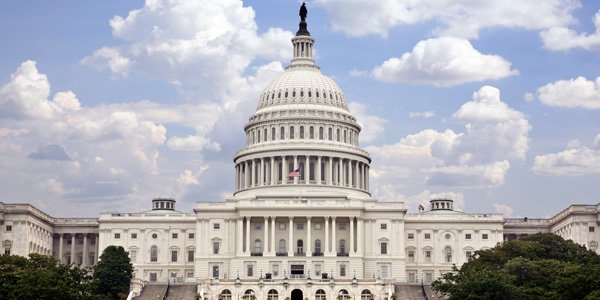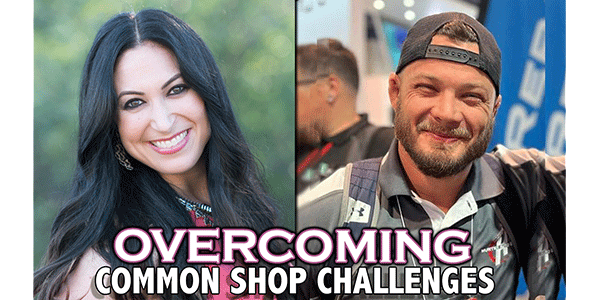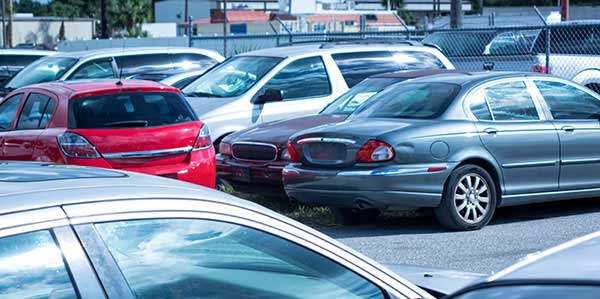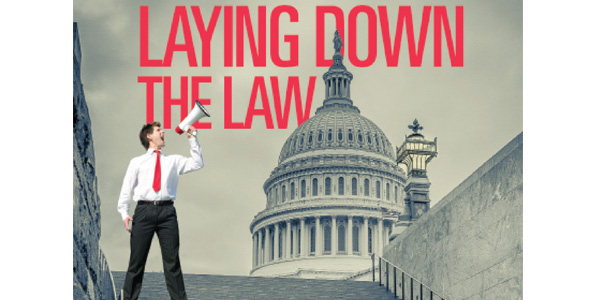
“If you’re not at the table, you’re on the table!”
I’ve used that phrase several times while making legislative presentations at the Collision Industry Conference (CIC) as the chairman of the Governmental Committee. I’ve also used it at other venues when speaking to body shop owners and others about legislative and regulatory matters. And I use that phrase for a good reason: It’s true.
Lending Expertise
Most legislators are not experts on the collision repair industry or other industries. While deliberating legislation or implementing a recently passed law, they often rely upon those who actually work in any given industry to provide guidance. If body shop owners do not make themselves available, then lawmakers and others will use other sources to gather information.
Those other sources can come from a number of places, but one of those sources will almost certainly be someone representing the insurance industry. Most insurers employ individuals and lobbyists whose sole job is to monitor governmental activity on their behalf. If shop owners are not engaged in these discussions, the legislator may naturally respond to the one point of view they hear.
I understand that body shop owners have businesses to run and therefore can’t spend all day at the state house or afford to employ someone who can. But they can take steps to ensure they’re aware of proposals as they move through the process.
Developing Relationships
The first, and most important, step is developing a personal relationship with their state representative or state senator. Attending a local official’s fundraiser is a good start. Like it or not, elected officials need funds for campaigns and show appreciation for those who contribute. Supporting your auto body association is also helpful.
Dave and Kevin Gallerani are third- and fourth-generation owners, respectively, of Cape Auto Body in Plymouth, Mass. Both have extensive involvement advocating for their industry by reaching out to their local legislators. And both understand that it’s a long-term commitment on multiple fronts that often yields the best results.
“It’s not just going to a fundraiser or two and then expecting the legislator to simply do what you want,” said Dave. “You also need to be supporting your local charities, be involved in your community, run a well-respected business and create the type of positive relationship where that elected official not just knows you but hopefully likes you as well. Like all of us, legislators are more prone to help those they like.”
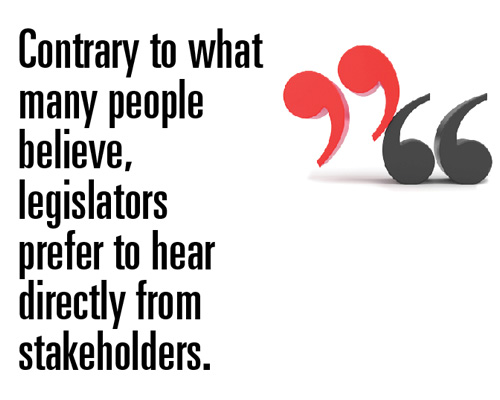
But, according to Kevin, while being liked is helpful, it’s still important that you do your homework and understand how any proposed legislation will affect your industry. He believes legislators are looking more for guidance than trying to impose their will and are looking to you as the expert. If they do not believe the information you’re providing is valuable, then all the goodwill in the world can’t help.
“I agree it is important to be liked and have a pre-existing relationship, but it is also important to be educated and honest in your dealings with elected officials,” said Kevin. “They are looking to you as the expert to help them understand how a particular bill will affect not just you but an entire industry. A single sentence change in a law that governs our industry could cost a body shop hundreds of thousands of dollars. Most important is never to be deceptive or dishonest, or you may never get a seat at the table again.”
Associations
Another way to ensure that your position is heard as a shop owner is to belong to your state or national association. Repairers have a reasonable expectation that the association will be at the table representing them. Many associations’ primary role is to monitor governmental activity, report back to their members and then employ a strategy of support or opposition based upon the direction provided by the members.
A key value proposition of the association is its ability to prepare materials, arrange meetings for shop owners and educate the shop owner on the best strategy to effectively accomplish their goals and objectives. Combining the relationships you’ve developed, with their knowledge of the legislative process, brings a much greater chance of success.
“Policymakers need to see and hear directly from those persons who would be most impacted,” said Robert Redding, ASA’s Washington, D.C., representative. “Although trade associations and their lobbyists are a necessity for protecting members and advancing the industry’s agenda, this cannot be done in a vacuum. We need the primary stakeholder involved.”
Educating Lawmakers
Contrary to what many people believe, legislators prefer to hear directly from stakeholders. That’s not to say that the associations and lobbyists they employ do not play an important role; they most certainly do. However, without disparaging the efforts of the associations or their lobbyists, I would say that in my 12 years working on Capitol Hill in Washington and 10 years in the Massachusetts Legislature, nothing is more effective than individual business owners personally meeting with legislators.
Legislators I’ve known and worked with have always seemed more energized, involved and attentive when speaking directly with business owners or direct stakeholders. They know that they’re getting firsthand – and likely more accurate – information. It also allows them to create a connection with a constituent, which is critically important to them come election time.
Of course, we’re all so busy nowadays that carving out time for such meetings can be a challenge. But arranging a meeting in the district with your local representative or senator is easier than many think. Many are even willing to come to your business, which provides a great opportunity for you to educate them on the specific challenges you face and investments you made in running a collision repair business. If you can’t arrange a personal meeting, then you should still communicate using other methods. In order of effectiveness, I would suggest a personal handwritten letter first. Then a phone call, typed letter and finally email. While email has become the dominant form of communication, they tend to overwhelm legislative offices and therefore are less effective than other means of communication.
Can David Win?
Repairers often cite frustration with the legislative process, thinking it’s a waste of time. Others are uncomfortable because they don’t understand the process well enough and are somewhat intimidated when visiting state capitols or Congress. But by far, the No. 1 reason many are reluctant to engage in the legislative process is that they feel outgunned and outspent by insurers, manufacturers and other large corporations associated with the repair industry. They shouldn’t!
Late last year, the California Department of Insurance issued new collision repair labor-rate survey regulations and new anti-steering regulations. Insurers fought hard to oppose these initiatives but were unsuccessful. The leading insurance association in California is still issuing statements about the negative effect these changes are having.
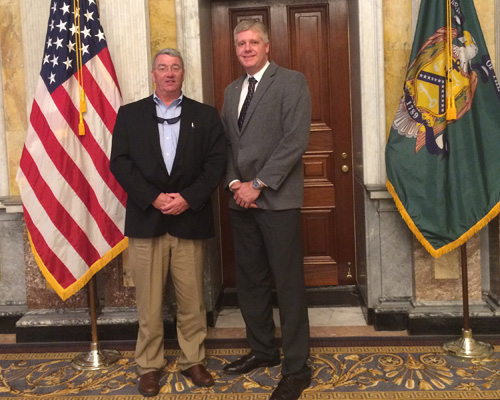
As reported by BodyShop Business in a news article in spring of 2017, “The regulations went through a formal review process required by state law, which included receiving input on the regulations at public workshops, public hearings and through written public comments, according to the agency. Consumers, insurers and repair shops provided input for drafts and revisions of the regulations.” I have no doubt that if repair shop owners had not been at those hearings, things would likely have been different.
“Staying engaged in the political process is the key,” said Scott Benavidez, Collision Division director of ASA and owner of Mr. B’s Paint & Body Shop in Albuquerque, New Mexico. “We must understand things do not happen overnight. But as long as we are persistent and consistent, shop owners can make
a difference.”
More Success Stories
There are other examples in states legislatures and also federally where body shop owners have had success.
On Sept. 5-6, I traveled to Washington, D.C., to join members of the Automotive Service Association (ASA) Collision Operations Committee for a series of meetings. The House recently passed the American Vision for Safer Transportation Through Advancement of Revolutionary Technologies (AV START) Act. We wanted to be sure that repairer interest was addressed. The liability associated with repairing vehicles with advanced crash-avoidance technology is high, and we lobbied lawmakers to establish a federal advisory committee comprised of aftermarket representatives and other stakeholders. The amendment, offered by U.S. Sen. Inhofe (R-OK), was added to the Senate version.
As discussed earlier, the association played an important role. Bob Redding, ASA’s Washington representative, prepared all the necessary materials and talking points and arranged for two days of meetings. However, were it not for the shop owners who took the time to travel to D.C. and provide a firsthand account of why this was needed, it may never have happened.
Supporting that theory is Wayne Weikel, senior director of State Government Affairs for the Alliance of Automobile Manufacturers. He recalled two instances where repairers played a key role in defeating several state legislative proposals.
“We saw the impact that shop owners can have in recent legislative fights in Tennessee and New Hampshire,” said Weikel. “In each state, there was an attack on consumer protection statutes that guaranteed the use of OE parts for no additional cost for the first few years of a car’s life. Having shop owners in the room to explain that there really is a difference between parts was important. When you’ve had your hands on parts for 20 years, your views are sort of irrefutable.”
Insurance Oversight
For many years, there has been debate about whether insurance oversight should remain the domain of the states or changed to allow federal agencies to monitor insurer activities. Even the two major national insurer associations (PCI and AIA) had differing opinions. However, a switch to federal oversight from state could have a dramatic impact on body shop owners.
For repairers who have spent the time to cultivate relationships with their state elected officials, a switch to federal oversight might diminish their ability to influence legislation. Getting to know one’s congressman or senator is undoubtedly a much more difficult undertaking than getting to know your local elected officials. Not impossible, but clearly more difficult.
On one hand, I do not see the current administration supporting the creation of a new bureaucracy to oversee the insurance industry. But we are seeing many more legislative proposals filed in Congress than in years past. Several seek to impose new laws governing the use of self-driving and advanced-technology vehicles. Others deal with parts patents, dealership franchises, recall information and data privacy.
“I think that we will continue to see a move to a hybrid insurance regulatory model of state and federal regulation,” said ASA’s Redding. “State and federal governments are still finding their way on AV policy primarily, and as long as industry segments continue to work together, all will benefit.”
A Worthwhile Cause
As business owners, we often venture down a road that turns out to be unsuccessful. This is because we understand that in business, as in life, you may not always make the right call or decision. But we understand that we must try.
Getting involved politically is really not an option for collision repair businesses. Because of the necessary interaction with insurers who operate in a highly regulated environment, there are always going to be hundreds if not thousands of suggested changes to the laws that are already in place governing the industry – any one of which, if changed even slightly, can have a significant effect on their bottom line.
I began this article with a quote I’m fond of and will end with another. As the former chief of staff for the Taxation Committee in the Massachusetts Legislature, each year I would meet with the chairman to review some 1,200 bills referred to the committee. His first question for each bill was always, “Has anyone contacted us about it?” If the answer was no, it was set aside. I once joked that the bill could have the cure for cancer and he would still set it aside. He looked at me and said, “Stephen, the world is run by those who show up.”
If I were a body shop owner, I would show up.

